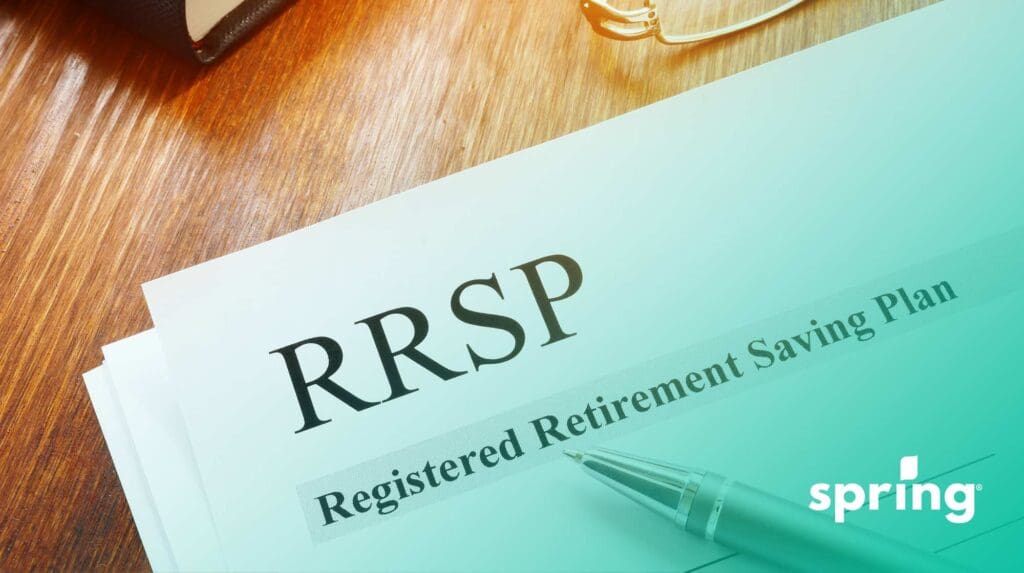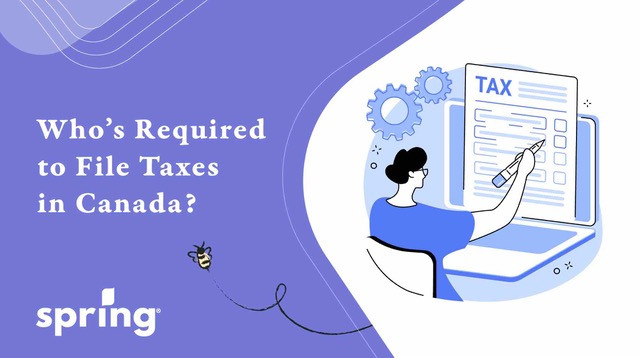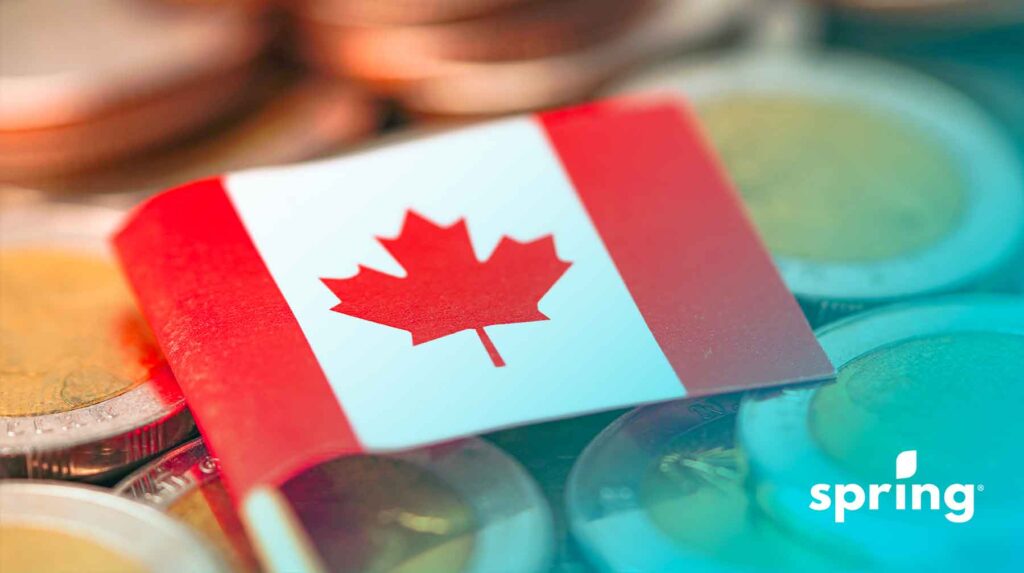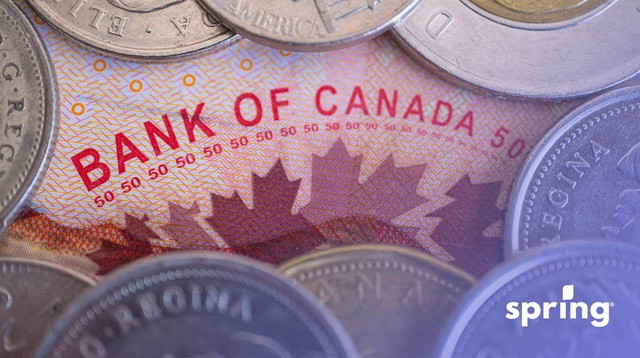Talking to a business advisor along the way can help with any business advice regarding how to hire employees, do payroll or any other aspects of the business. The first step, though, is to start your business, from there you can take it in any direction you’d like as long as you follow some regulations and policies put in place by the government.
What is the Process to Start a Small Business in Canada?
When it comes to starting a small business, it is important to take it slow before you put your business plans into action. There are a few different steps to follow to help make your business as successful as you intend it to be, if not more.
Remember, this process is the same throughout every province. The main difference is the fees charged for registration. So whether you are in BC or Ontario, these steps will help you to become a business owner.
1. Plan
The first thing you want to do is make a plan. Make sure you are ready to take on this type of commitment. Once you have done that, then you should choose a business structure.
Once you have chosen a structure, then it is important to do some market research before you start building a business plan. Studying the market will help you discover the unique spin that you need to differentiate yourself from the rest of the market. It can also help you develop new ideas that meet the needs of the market you are targeting.
Lastly, is the business plan. Having your business plans on paper helps you to display your ideas to lenders, investors and even shareholders. Oftentimes business plans can lack some key things so be sure you are clear with your information, show strategic orientation and give lots of details. It is important for a business plan that you do your research. The more precise you can be, the more prepared you will be.
2. Create a Name
Once you have created your plan, the next step is to choose your business name. While it may not seem important, it is important that your name reflects the type of business you are creating. The name, itself, can help attract more business. You ideally want to pick something that is easier to remember but is also distinct and can set you apart from other businesses.
By law, you can’t pick the same name as another business, or even be too similar, so you can look up your prospective name online or check online business name registries just to check. You can also check other provinces to verify that no one else has the same name.
Lastly, you want to register your business’s name. You can register your business as a sole proprietor, partner, or corporation). If you are a sole proprietor and are operating under your legal name, you do not need to register a business name, but for any other scenario you do.
When it comes to naming a corporation you need to register the name in the jurisdiction you are incorporating. This is because a corporation is considered a separate legal entity and therefore it not only needs to be separate from your legal name, but distinguishable from different businesses.
The last scenario is a trade name. This means any name other than your legal business name needs to be registered as a trade name.
3. Register Your Business
In order to register you business you need to make sure you have the following information”
- The location of the main office
- Where you plan to operate (provinces and territories)
- Your business name
- Whether your business is sole proprietorship, partnership, cooperation or co-operative
When you register your business with the Canada Revenue Agency, you will get a GST/HST number along with your business number. You should have this number if you have any sales that deal with provincial sales tax, harmonized sales tax, goods and services tax, and/or Quebec sales tax. This number not only helps you when filing your taxes, it helps the government to also keep track of the different aspects of your business.
4. Permit and Licenses
Once you have completed everything above, then you need to get the appropriate licenses and permits needed for your business from 3 levels of government:
- Provincial
- Municipal
- Federal

Canadian Small Business Laws
In Canada, the industry defines a small business as a business that has fewer than 100 employees. There are over 1 million small businesses in Canada and they all have to follow the same laws. It can be a lot to start a small business but the laws aren’t as complex as you think.
They also vary depending on the type of business that you have. For example: if you are in the restaurant industry there are certain food and safety laws and regulations you have to follow. It all depends on the industry. Canadian small businesses also have to follow the labour laws when it comes to hiring employees. It doesn’t matter how big or small your business is, this will always apply.
How to Start a Business in Canada with No Money
While it can be very possible to start a business in Canada with no money, it is often much more difficult. It ultimately depends on the type of business you wish to start, but most businesses do require $5,000 to $10,000 to start. You may have to be a lot more inventive if you don’t have any investment money.
Another option if you don’t have the money upfront, is to get a loan or an investor. Many companies will give loans to those looking to start a small business, or there may be investors willing to invest in your ideas to help you create your business. This is where a business plan comes in. Having a strong business plan will help you to get the money you need, giving the banks and investors confidence in your ideas.
How Much Money Do You Need to Start a Business in Canada
As mentioned above, it is ideal to have around $5000 to $10,000 to start your business. Of course, this ultimately depends on the type of business you are starting. On average though, you do need to thing about the cost of things like:
- Office space
- Inventory
- Marketing
- Licensing fees
- Bills
- Payroll
- Insurance
- Any other relevant costs
Oftentimes it will take a bit before you see any profit so the more you have available for start up costs the better. While it is doable to be successful without any startup money it is often the reason many new businesses fail right after they begin, you are more likely to succeed if you have some capital to start with.
How to Keep Track of Business Expenses
The easiest way to keep track of your start-up money and what you use for business expenses, is to create a business bank account. When you own your own business, not only is it beneficial to keep track of your expenses for cost reasons, it’s also helpful for tax reasons.
You are responsible for reporting yearly to the Canada Revenue Agency on your earnings and a lot of your expenses will be able to be written off. By keeping track of a separate bank account and/or business credit card, it is much easier for you and/or your account when tax time comes around.
Your business account should be the only place that expenses like business insurance come out of. If you have business loans, the money to pay them should come out of here as well as any payroll expenses.
Getting a Business License in Canada
A business license is a license the government gives you to conduct business in Canada. There are different types of licenses with each level of government. There will be federal, provincial and municipal licenses and requirements. It is important to get these required permits or licenses to avoid fines or worse.
The types of licenses required and the processes to obtain them will vary depending on what type of business you are starting. Every province and territory will have their own rules you need to follow, same with the municipalities within these provinces. It is important to check in and see what you need to verify you meet the requirements before you start.
The easiest way to verify you have all the permits and such that you need, is to check with the different governments directly. Whether it be on their site, in person or over the phone. This will give you the most accurate information and help to avoid any confusion.
Starting a Business in Canada for Foreigners
In order to start a business in Canada, you would need to immigrate or at least find a Canadian to go into business with. There are regulations that need to be followed.
In order to immigrate to Canada, you would have to do so as a business immigrant. This allows you to start a business as well as live in Canada. You must be able to prove that you have a business that qualifies, are proficient in either English or French, can afford to move and live in Canada before you start earning income and have support from an organization like angel investors or something similar.
If you want to start a business in Canada, but not live here, the rules differ per province. The main thing is though, there should be someone who owns the business that is a Canadian citizen.
What Qualifies as a Small Business in Canada?
In terms of size, a small business is usually considered to have less than 100 employees. As far as revenue goes, they make $5 million dollars a year or less. The importance of this is that, because you are considered a small business you can be considered for loans and grants from the government that larger corporations wouldn’t qualify for.
The reason that this can be confusing is because the different sizes of business are broken down into small, medium and large businesses. It’s also complex because different groups and programs judge small business by different criteria while the most common are the two above. It ultimately just depends on who is considering you to be a small business.
| Industry Canada | They consider a small business as a business with between 5 and 100 employees. |
| Canadian Bankers Association | They consider a small business as a company with a credit limit less than $500,000. |
| Export Development Corporation | Their definition of a small business is one that has less than $1 million in export sales. |
| Canadian Small Business Financing Program | Their definition again is slightly different again with a revenue of less than $5 million. |
| Treasury Board of Canada Secretariat | Lastly, this definition of a small business is a company with under 100 employees and revenue anywhere between $30,000 and $5 million dollars. |
Is it Easy to Start a Business in Canada?
Setting up a business in Canada is relatively easy. It is important to keep in mind that it’s maintaining a successful business that is much more complex. A good part of that though is following the proper protocols for setting up your business. Getting the proper licenses, claiming your taxes correctly and registering your business are all part of that.
The biggest thing with starting a business in Canada is having enough start-up money to survive until you start seeing a profit. There are plenty of loans and grants out there to help with this if your business is registered correctly. No matter your situation though, if you start your business with a drive to succeed you are already out to a fantastic start.
What Does it Cost to Register a Business?
What it costs to register your business depends on how you are registering it. If you are registering as a corporation then the cost to incorporate your business federally is $200 if filed online (Corporation Canada’s Online Filing Centre) and $250 anywhere else that you register.

The Cost of Registering a Business Per Province
How and where you register your business for sole proprietorship or incorporation all depends on where you intend to operate. Every province has its own different fees and regulations. What you are registering you business also makes a large difference in the price.
Ontario
In order to incorporate your business in Ontario, the cost is $360. That is in person or by mail only. If you do it online (Ontario Ministry of Government and Consumer Services) then the cost is reduced to $300. If you are just registering your business and not incorporating, the cost is then only $60.
BC
In BC, it is a cost of $350 to incorporate and then there is an up to date name approval fee of $30 for a total of $380. You can do all of this through the BC Registry Services Site. In order to register for sole proprietorship the cost is only $40 plus the name fee for a total cost of $70.
Alberta
Alberta has a basic registration fee of $450.
Saskatchewan
In Saskatchewan, you can register your small business as a sole proprietorship or a partnership. The cost with all fees is $232.07.
Manitoba
In Manitoba, registering a business as incorporated is a cost of $350 for share or $120 for non-share/profit. The fee on top of this to reserve the name is $45.00. To register a business as a sole proprietorship is $60 with a name fee of $45.
PEI
In Prince Edward Island, the cost to incorporate your business is $305. This already includes the cost of the name as well as newspaper publication. In PEI, you do not have to register a name if you are operating the business under sole proprietorship.
Newfoundland
To incorporate your business in Newfoundland the cost is $300 and only $70 for a non-profit. There is no provincial registration for sole proprietorship or partnership businesses,
Nova Scotia
The fee to register a business under sole proprietorship in Nova Scotia is $68.55 and has to be renewed annually. The cost to incorporate a company in Nova Scotia is $200 with an annual renewal fee of $118.35.
Need a Loan to Start Your Business?
Depending on the type of business you are starting and how much start-up money you need, you may not need as large of a loan as you think. While many banks and such will fund businesses, if you are starting a small business and just looking for a small personal loan in order to get started, Spring Financial can help. Sometimes, just that small amount of extra money can make the difference.
Whether you need $500 or $35,000, you can apply in as little as 3 minutes and have the money as soon as today via e-transfer. We specialize in personal loans for those with all credit types. On top of that, all of our loans are open which means you can pay them off at any time without penalty.
We even report to both Equifax and Transunion meaning, not only can our loans help you out by getting you the extra cash when you need it, they also help to improve your credit score. Apply online today or give us a call at 1-877-781-8439.








